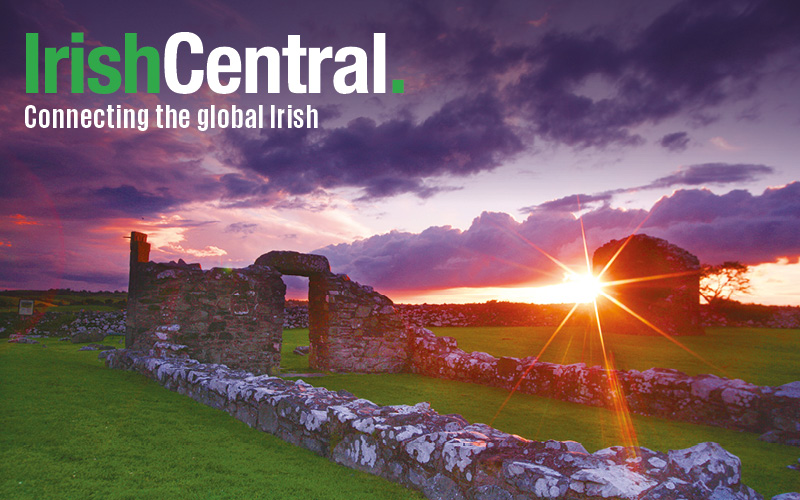This article appears courtesy of the Dublin Globe. For more stories from Dublin's tech scene and startup ecosystem, visit their website here.
In November more than 130 blockchain enthusiasts and developers converged on Dublin City University for Europe’s biggest Blockchain Hackathon. In its second year, it attracted beginners and experts alike, who came to share ideas, learn new skills, and build a blockchain product from scratch in just one weekend. A tall task, but one they all emphatically threw themselves into. At the end, the winners of the weekend were Ticket Chain, a secure marketplace built on the blockchain for selling event tickets, both for businesses and consumers. The team was led by Kevin Murray, Jake McGwire, Jean Luc Verhelst, and Lucas Henning – all Deloitte employees. It was the first time any of them had taken part in a hackathon.
The fact that all four came from Deloitte and were new to hackathons was no coincidence. It was a direct consequence of the organizer’s ambition: to inspire people and organizations to pay attention to the potential of blockchain.
“Since last year’s hackathon we got the ears of the IDA and many more multinationals jumped on the bandwagon and are now exploring blockchain,” says Kevin Loaec, managing director of Chainsmiths, the organizer of the hackathon. After last year, it was Deloite that put a bet on Dublin as a hub and opened its Blockchain Lab for the EMEA region in the city.
The confusion is strong with this one. #thereMAYbelight #confusinglights #doesiteventurnon #chainhack @Chainsmiths pic.twitter.com/RC69FNwoC8
— Marie Lando (@Marie_Lando) November 5, 2016
Chainsmiths, a blockchain consultancy based in Dublin that guides companies through building their blockchain product, ran the hackathon with the support from Bank of Ireland, Deloitte, and Fidelity.
This year’s hackathon was an opportunity to take the pulse of blockchain and its ideas beyond Ireland. More than half of the 130 hackers and tinkerers traveled from the rest of Europe and the US to take part. “We wanted to show the world that we are as good as we say,” Loaec explains.
It was also a way to show that blockchain is not just about finance.
On the opening night we saw pitches and idea-sharing on potential projects ranging from a system that verifies academics’ research to one for purchasing weather insurance for protecting crops in developing countries.
One of the runners-up on the closing night was ChaingeMe, a solution for tracking your exercise or betterment routines on the blockchain so you can be called to account for your progress. The other was Orion, a treasure hunt application which allows users to search for currency in hidden locations.
Building an ecosystem
The spark that brought about two successful blockchain hackathons can be traced back to 2013, when Ronan Lynch, along with Glenn Bolger, Paul Williams, JP Rupp and Tim Callagy started the Bitcoin meetup.
“The amount of tech talent on the island is incredibly high, and we have all the conditions to build a community,” Loaec says. But blockchain as a whole is still nascent and that is true of Ireland, where the potential needs to be nurtured more.
Whiskey Cask traceability on the #blockchain #Dublin #chainhack @DCUalpha @TeelingWhiskey pic.twitter.com/Lr69lSlwns
— John Malone (@malonej) November 6, 2016
Cillian Leonowicz, a senior manager of Deloitte’s Blockchain team in Dublin, points out that the skill sets in the blockchain space in Ireland are progressing well. However, they still need work: “What we need now is kids in Irish schools looking at coding, looking at cryptography, and looking at the advanced elements that make this sustainable.”
In that sense, the hackathon is not simply preaching to the converted but also trying to speak to the unlikely influencers. “We have to make the Central Bank realize that there is an industry,” Loaec says. He explains that there needs to be more clarity in regulation in Ireland, in both financial terms and with data protection, which would, in turn, stimulate the ecosystem.
Partners like Deloitte and Bank of Ireland are well-placed to influence the discussion. While startups build the innovative products, it is the traditional firms and multinationals that reach the decision-makers. The hackathon is the breeding ground where they meet and foster the future of blockchain.
“We have a job to do both internally and externally to develop the ecosystem,” claims Leonowicz. Deloitte’s lab is doing its fair share, with a wide remit ranging from researching new blockchain applications, to training clients and internal staff and developing the wider ecosystem. It has already worked on partnerships with Bank of Ireland and blockchain software developer ConsenSys.
“I think the reality is that regulations will help us define standards for what’s going to allow the blockchain to take off. Unless we’re all on the same page and willing to share information and normalize, this will not take off,” says Leonowicz.
Learning game
“The blockchain industry is very young, we keep pivoting ideas, and the hot topic switches every six months,” says Loaec. “Right now it’s identity; six months ago it was putting shares on the blockchain and six months before, it was cross border payments.”
Judges checking out the teams (in slo mo) @Chainsmiths hackatjon today @DCUalpha! #chainhack pic.twitter.com/eWrXKKIvlm
— Gene (@genemurphy) November 6, 2016
For many, the blockchain is still ripening. Relatively smaller institutions like Bank of Ireland are waiting to see what’s going to stick, where the communities are growing and what’s working, explained Recie Breen, the bank’s head of group payments. Oftentimes it will take a couple of major global firms to get behind a blockchain idea before it really takes off.
The hackathon and participating teams give companies a much better grasp of what may or may not work.
Everyone is figuring that out together. The enthusiasm to learn manifests most clearly at the final pitches and demos: participants field questions from judges, not simply explaining what they have created but also what they have learned and improved along the way.
There is no such thing as a safe bet yet, but that’s not stopping other projects from getting off the ground.
Irish dairy exporter Ornua was at the center of the world’s first trade transaction using blockchain this year. The transaction was carried out between Barclays and Israeli startup Wave, guaranteeing the trade of $100,000 worth of dairy products from Ornua to the Seychelles Trading Company. The deal was closed on Wave’s blockchain platform.
Conversations around the blockchain tend to focus on finance, but the Cloughpenny project is trying to build a community and local economy of its own with the blockchain.
The project, based in the Cloughjordan Ecovillage in Co. Tipperary and funded by the Irish Research Council, is exploring ways to inspire sustainable living using the blockchain for currency and decision-making in the community. In October it held a day of workshops laying out the opportunities and challenges for such an ambitious mission.
Irish AID:Tech, meanwhile, is trying to revolutionize humanitarian aid transactions at places like refugee camps by making them fully transparent. That should, in theory, ensure that aid arrives exactly where it’s intended and reduce fraud and corruption, with each user getting a unique voucher to trade for food and other vital goods. AID:Tech is already working with the Red Cross and UN to roll out services in Haiti, Serbia, and Malawi.
Ireland could potentially be a core location for blockchain startups and development. It’s a space that’s moving very quickly, so Irish-based blockchain enthusiasts and developers will need all the supports they can get to keep up with the many other blockchain ecosystems popping up around the world.
The passion and drive to build something new and innovative at this year’s Hackathon is certainly proof that we’re on to something.
---
Photos by Marie Lando.
Jonathan Keane is a freelance tech writer living in Dublin covering tech start-ups, innovation, and everything else in between.
This article appears courtesy of the Dublin Globe. For more stories from Dublin's tech scene and startup ecosystem, visit their website here.




Comments